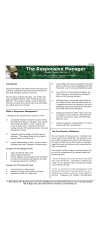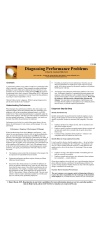Why It’s Easier To Destroy Employee Engagement Than Improve It
In the late 1950’s and 1960’s, psychologist Frederick Herzberg suggested and researched a rather simple, and common sense like explanation about what motivates and demotivates people at work. Herzberg can be applied to the problem of why companies are unable to raise employee engagement.
Herzberg’s Motivation – Hygiene Theory
Unlike others who suggested that the SAME factors that motivate employees also demotivate them, Herzberg suggested that in fact, the things that cause employees to work harder, are not the same as the things that DEMOTIVATE, or discourage employees from working harder.
Motivation factors include things like recognition of work well done, challenging work, opportunity to develop skills that tend to build a positive feeling towards work and the employer, and encourage staff to put more effort into their jobs.
Where Herzberg differed from others was that he postulated HYGIENE FACTORS that operate differently. A hygiene factor is an element that does NOT increase motivation, but can demotivate employees by its absence and create a sense of dissatisfaction.
Here’s a practical example: Pay level. If you increase someone’s pay by let’s say twenty percent, you don’t get twenty percent more effort and work. That’s one reason why salary isn’t a motivation factor, although many people believe it is.
However, if you cut salary by twenty percent, you WILL create dissatisfaction and emotions that will likely cause employees to feel less loyal, and expend less effort, because you took something away that they wanted, or had before.
It’s not a perfect theory (none is), but it has considerable value in explaining why employers have failed over the last ten years, at improving employee engagement.
It’s Easier To Damage Employee Engagement Than To Improve It
The factors in the workplace that influence employee engagement (i.e. what the employer does) are hygiene factors, or those things that, by their absence lower employee engagement. Let’s consider another example:
Layoffs have a tendency to decrease negatively impact morale, because they erode employees’ sense that the employer is loyal to them, not to mention they create huge amounts of uncertainty and fear for remaining employees. Translating that into EE terminology, when employees feel that their employer is NOT providing job security, or is acting in ways not loyal to them, it’s the ABSENCE of those things that negatively impacts on their engagement.
You can’t raise employee engagement by not laying off staff, but you CAN create disengaged employees by removing the sense of loyalty and job security on the part of employees.
Likewise the ABSENCE of a raise is more likely to impact on employee engagement than the giving of raises every year.
As a result, it’s far easier to damage employee engagement, or do the wrong things, than it is to raise employment engagement by “doing the right things”.
A single element like layoffs or announcing there will be no raises this year, is far more powerful a demotivator than having no layoffs or having raises.
Conclusion
This goes a long way to explain why companies have failed at employee engagement, and will continue to fail. To put it succinctly:
It’s a lot easier to screw up employee engagement by doing “bad or stupid things”, than increase employee engagement by doing the right things. And, in many ways, in our business climate, companies will almost always, over time, feel they have to take steps to ensure their survival and economic prosperity for stock holders. Those things, whether it’s cutting staff, or removing benefits, or withholding raises WILL damage EE far more than any motivational factors can improve it.






